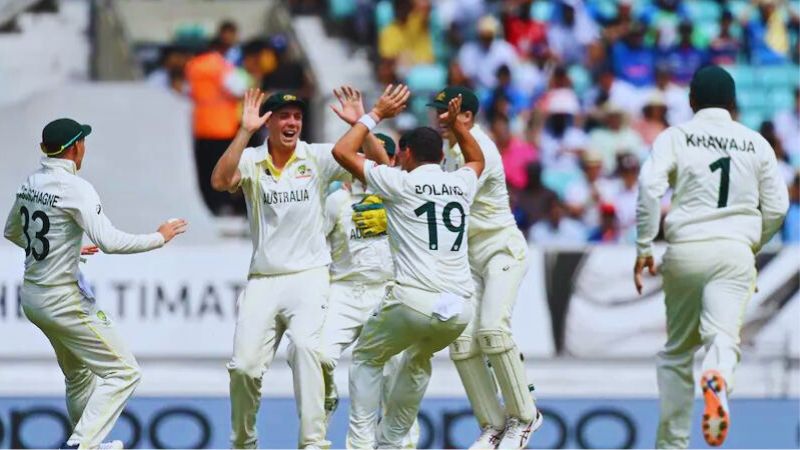ICC’s Protective Measures for Test Cricket Against Franchise Leagues
Exclusive: Jason Roy's contract cancellation highlights ICC's efforts to safeguard the integrity of international cricket
June 13, 2023
3.1 minutes
ICC’s Protective Measures for Test Cricket Against Franchise Leagues
Exclusive: Jason Roy's contract cancellation highlights ICC's efforts to safeguard the integrity of international cricket

In an effort to protect the sanctity of Test cricket, the International Cricket Council (ICC) is preparing to impose restrictions on the number of overseas players that franchise teams can sign.
The growing influence of franchise leagues was recently exemplified by Jason Roy’s decision to withdraw from his current national contract and join Major League Cricket in the United States. This trend has prompted national boards to take more proactive measures to safeguard the international game.
Next month, the ICC is expected to approve two immediate changes aimed at preventing T20 cricket from overshadowing international cricket. The first change involves reducing the number of overseas players allowed in the starting XI to four, while the second change mandates T20 leagues to pay national boards for each player they sign.
The four-overseas-player limit is a direct response to the emergence of new leagues this year. For instance, the International League T20 in the United Arab Emirates permitted nine overseas players per team, while the upcoming Major League Cricket in America plans to allow nine in each squad and six in each playing XI.
These developments raised concerns that these leagues, as well as potential new leagues like the rumored Saudi Arabia league, could attract top talent from around the world without considering nationality, resembling the approach of leading European football clubs. By implementing a limit of four overseas players per matchday squad, similar to the Indian Premier League, countries will have to rely predominantly on domestic talent.
Furthermore, the four-player limit will reduce the likelihood of players abandoning international cricket to sign lucrative multi-team franchise contracts. With fewer overseas slots available, Indian Premier League franchises are less likely to acquire more than a couple of players per team through such deals, thus minimizing the overall risk to Test and international cricket.
The second change requires all T20 leagues to allocate 10% of the player fees to the respective national boards, matching the practice of the Indian Premier League. As the value of T20 leagues continues to grow, this contribution will become an increasingly vital source of income for national boards.
Richard Gould, CEO of the England & Wales Cricket Board, has expressed concerns that leagues are not adequately contributing to player development or compensating national boards for their efforts. He emphasized the importance of funding the pathway for long-term success in cricket.
These proposed changes echo the recommendations made by Johnny Grave, CEO of Cricket West Indies, in 2018. While no action was taken at that time, the subsequent rise of the International League T20 and the increasing number of players opting for franchise contracts over national contracts, as demonstrated by Trent Boult’s decision in 2022, have underscored the urgency for boards to act.
New T20 leagues have already launched in South Africa and the United Arab Emirates, while the forthcoming Major League Cricket in the USA, backed by influential figures in Silicon Valley, including Microsoft CEO Satya Nadella, is set to begin next month.
Discussions among cricket officials have also considered the LIV takeover of golf as a reference point for the changing landscape of the sport. Any potential insurgent competition would now have to adhere to the limit of four overseas players from Test nations to be considered sanctioned cricket. Failure to comply would effectively force players to abandon the existing franchise and international structure—a risky proposition given the significant earnings available in the IPL and other sanctioned leagues.
It is proposed that the limit on overseas players would only apply to players from the 12 Full Members, allowing leagues in emerging countries to create additional slots for Associate players.
recent posts
IPL 2025, 59th Match: Rajasthan Royals vs Punjab Kings – Clash of Royals and Kings!
CRIC Developer2025-05-19T01:05:16+06:00May 18, 2025|Cricket Videos|
LIVE: Who will win today’s match? Rajasthan Royals vs Punjab Kings, 59th Match. Cricket Match Prediction
cricdiction2025-05-18T00:08:08+06:00May 18, 2025|Cricket Match Prediction, Live Cricket Match Prediction, One Day Matches, Prediction, T10 League, Today Match Prediction, Twenty20 Matches, Who Will Win|
10 Wins at Home, Just 2 Away: A Deep Dive into Rohit Sharma’s Test Captaincy Record After Retirement
cricdiction2025-05-17T05:17:53+06:00May 17, 2025|Cricket Analysis|





